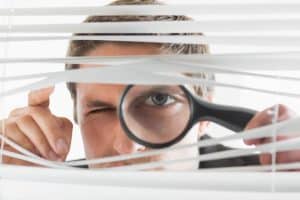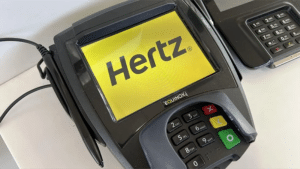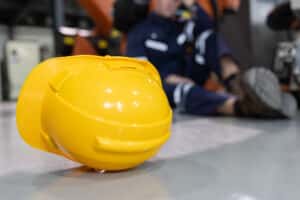
But the practice has HUGE drawbacks. Despite the fact that some companies justify employee monitoring as a way to make their operations run more smoothly, it can actually damage morale and have consequences for the business’ overall performance.
One downside emerged in the outrage from employees at the London-based Daily Telegraph, where workers discovered last week that heat-sensing monitors had been installed under their desks (see full story in BuzzFeed).
In fact, the majority of Telegraph employees only found out about the monitors when they read the BuzzFeed article or Twitter, and complained that the company had violated their privacy. And the blowback was so intense that the company removed the desk monitors by the next day.
This form of monitoring is especially sensitive for journalists, who’ve already experienced massive changes in their industry during the past decade. It used to value workers heading out of the office to meet people and get the scoop on relevant stories; now, the industry prioritizes churning out as much content as possible – regardless of the quality. Because of that change, desk monitoring can be seen as an implicit devaluing of shoe-leather reporting in favor of mindless online aggregation. At the Telegraph media service, it also undermined workers’ trust in management.
Insert image
Furthermore, these workplace monitoring efforts aren’t even effective, according to recent studies. While technologies for this purpose have improved recently, basic video surveillance has existed for decades – but whether it works depends entirely on what employees are doing.
For example, a 2013 study indicated that restaurants with surveillance in their cash register software experiences significantly lower rates of theft, as Bloomberg Businessweek reported. But introducing or expanding surveillance to increase productivity is very different from surveillance to prevent theft, and it seems to do little more than stress out employees.
In fact, multiple studies show that workplace stress is a major detriment to business, costing companies several thousand dollars per worker each year through in absenteeism, disability claims, and more — and those losses don’t even account for the decline in productivity. Little wonder that employees find surveillance stressful. As one of the classic studies on these effects showed: “Employees who had their performance electronically monitored perceived their working conditions as more stressful, and reported higher levels of job boredom, psychological tension, anxiety, depression, anger, health complaints and fatigue.”
Yet another comprehensive report indicated that electronic monitoring boosted the performance of “high functioning workers,” but handicapped the performance of “low ability workers.” In other words, if you are already great at your job, being monitored at your desk can make you work faster. But for those still trying to learn the ropes at their job, being monitored makes you worse. Regardless of skill and ability, the study showed that monitoring stressed workers out significantly — even more than the researchers expected — and that being individually monitored (like with an individual desk heat sensor) enhanced stress even more than being monitored as a group.
Some Telegraph employees shared concerns that their desk data could even be used against them in performance reviews.
One trendy practice in the business world these days is to ditch assigned seating altogether (it’s called “hot desking”) and/or switch over to an open office plan to reduce costs on office space. Citigroup downsized its allocated office space per employee back in December, forcing even high-paid investment bankers into an open office plan. The accounting and consultancy firm Deloitte has opened a futuristic building in Amsterdam with no assigned seating. According to Bloomberg, 1,000 desks accommodate 2,500 employees, because not every employee works from the office every day.
Journalists may have been unsettled on Monday over the desk monitor revelation, but the truth is their bosses already have mountains of data about how many stories they write, how well those stories do, what sites the people reading their stories come from and even how long readers stay on the page. Journalists are already under a daily microscope, and data about how long they’re sitting at their desks probably won’t be a tipping point performance metric.
But that journalist could still come into the office one day to find she doesn’t have a desk anymore.

Hertz Data Breach
Hacking incident involving a company it works with exposed its customers’ personal information Hackers breached Cleo Communications, a company that Hertz works with for file transfers. As reported in...
Read More


